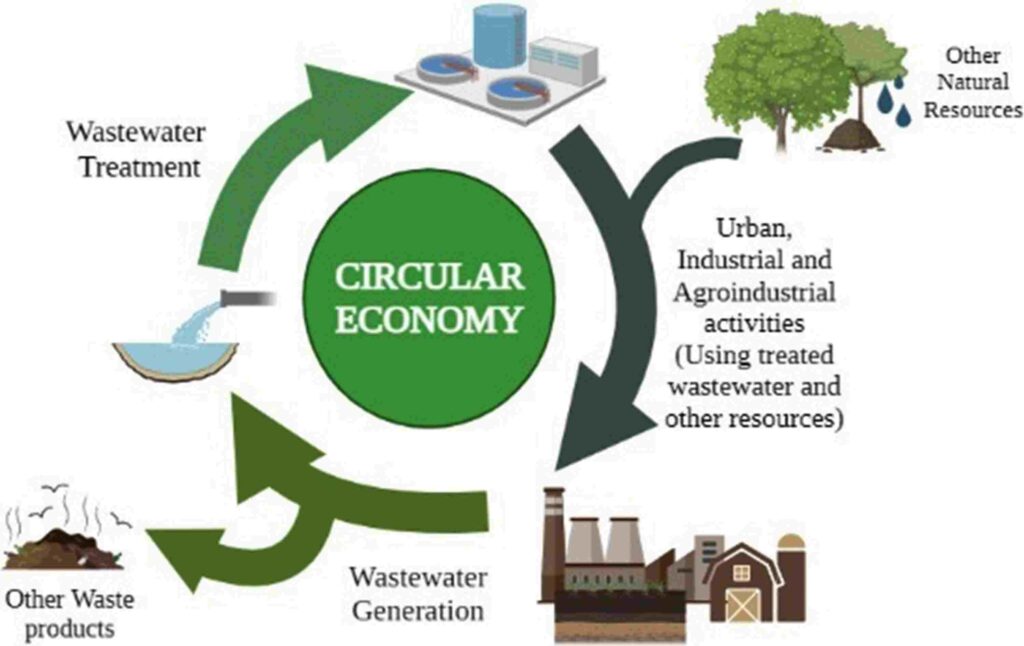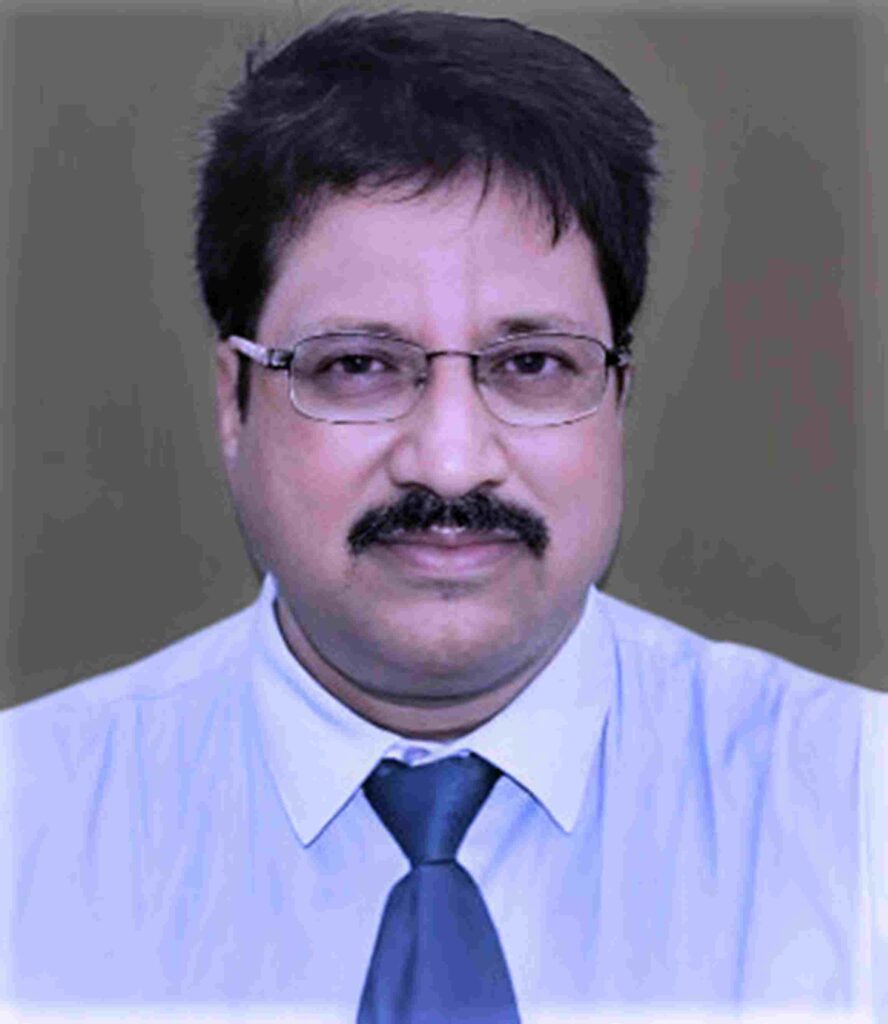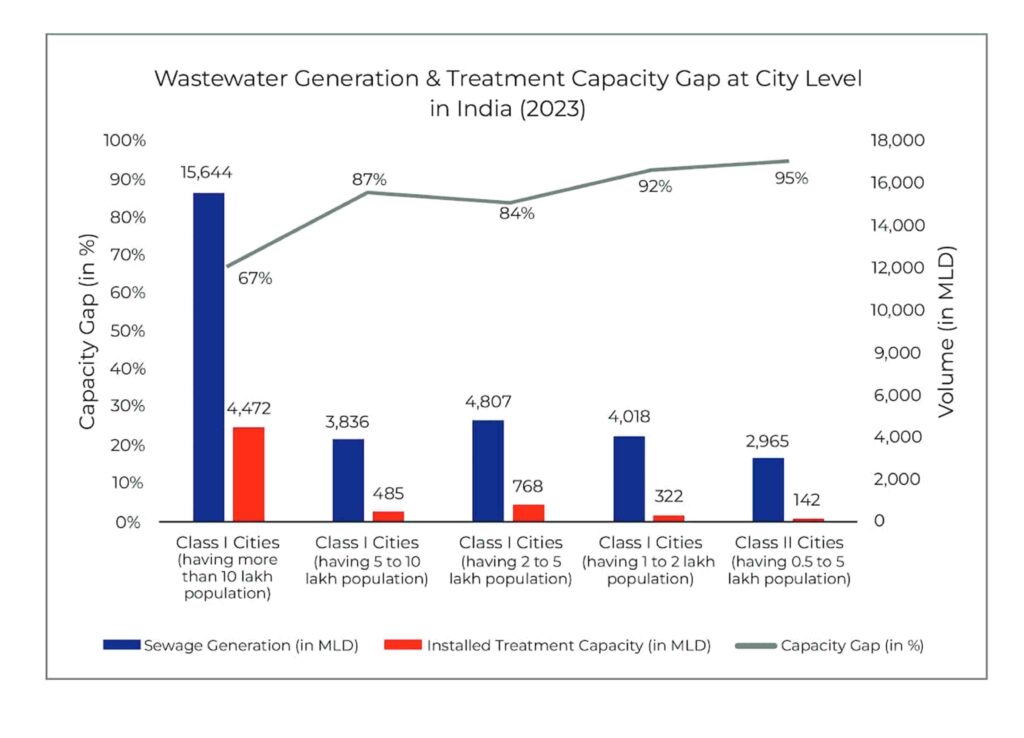
Untreated wastewater consisting of pathogens and chemicals have been contaminating water bodies leading to illnesses and environmental harm. Praadip Barkale, Functional Head of Effluent Treatments at Allanasons Pvt. Ltd, emphasises that a comprehensive, multi-pronged approach that includes infrastructure, policy and community action is needed.

A comprehensive, multi-pronged approach that includes infrastructure, policy and community action is the only way to solve India’s wastewater crisis.
— Praadip Barkale
A major issue is the lack of basic infrastructure, such as Sewage Treatment Plants (STPs), in small villages, towns and gated societies, which contribute a heavy sewage load to rivers. Most existing treatment facilities also lack the capacity to treat the available wastewater quantity and do not use modern, advanced treatments like membrane filtration. In addition, sewage systems are often in poor physical condition, leading to leaks and overflows.
Solutions
A critical step is to invest in infrastructure so that every village, town and community has a treatment facility. It is also essential to modernize existing municipal, industrial and sewage treatment facilities to improve their capacity and efficiency in removing pollutants.
For industrial wastewater, a key solution is to mandate the adoption of cleaner production technologies and robust systems that manage waste before discharge. The highest standard Zero Liquid Discharge (ZLD), which aims to eliminate wastewater and sludge disposal entirely, should be implemented for combined facilities. This treated water and sludge can then be converted for reuse, such as for irrigation or supplementary manures, fostering a circular economy.
Improper Disposal
A lack of community awareness about the impact of improper waste disposal is a significant problem. Many individuals also dispose of household chemicals, pesticides and motor oils down drains and use toilets as garbage bins, which introduces harmful pollutants into the water system.

Create Awareness
Promoting community awareness is vital. The public must be educated on the impact of improper waste disposal on water bodies and the importance of proper disposal methods. Individuals should be encouraged to minimize the use of household chemicals and to dispose of all waste properly in bins. Additionally, adopting water conservation practices can help reduce the volume of wastewater that needs to be treated.
Weak Policy
Current legislation and enforcement are often insufficient to penalise polluters and ensure compliance with water quality standards. Further, a lack of cross-sector collaboration between environmental, health and government sectors hinders the development of integrated solutions.
Management Needed
Governments must implement and strictly enforce regulations that penalize polluters and ensure compliance. It may be necessary to separate this wastewater department and control it centrally to ensure greater effectiveness. Fostering partnerships between different sectors is also crucial for developing integrated solutions for sanitation and water management. Additionally, improving the management of stormwater and urban runoff is essential to prevent pollutants from entering water bodies.
 CIJConnect Bot-enabled WhatsApp
CIJConnect Bot-enabled WhatsApp












